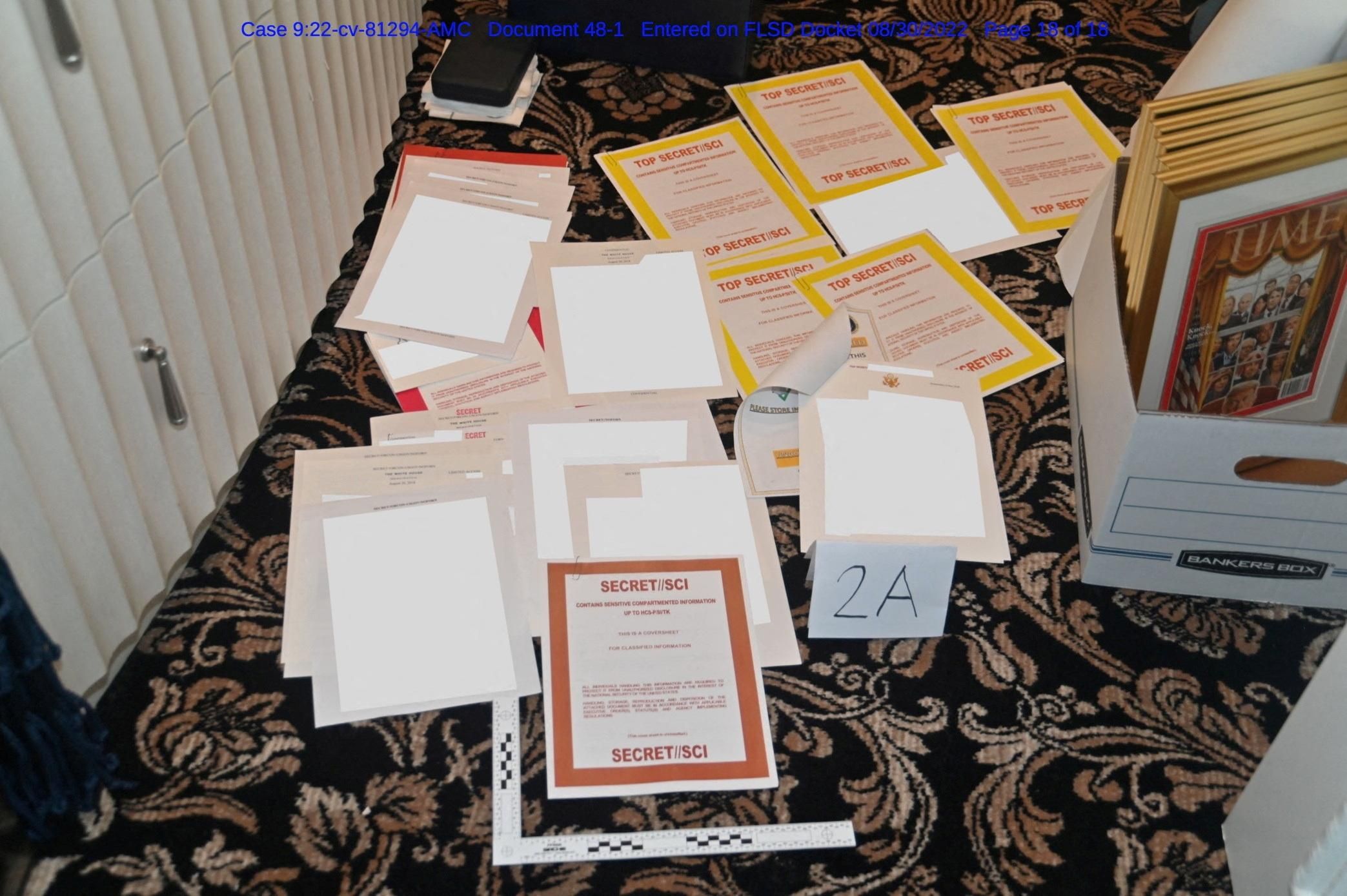What We're Watching: Trump obstruction evidence, IAEA team in Zaporizhzhia, IMF-Sri Lanka bailout deal
Did Trump conceal top-secret documents?
Donald Trump repeatedly blocked US law enforcement from accessing highly-classified documents stored at his Mar-a-Lago residence (and lied about how many files remained there), according to a scathing new document released Tuesday by the Department of Justice. The filing came in response to a recent request by the former president that the documents — seized from his Florida estate by the FBI on Aug. 8 — be reviewed by a third-party arbiter to decide if any are covered by executive privilege. (The DOJ opposes this on the legal grounds that the records don’t belong to Trump.) It’s the most detailed account to date of the months-long attempt by the National Archives – an independent agency that stores and preserves government records – to obtain classified files Trump took from the White House after the 2020 election. The filing includes a photograph of documents labeled “Top Secret” and claims that some material was so sensitive that some FBI and DOJ personnel required additional security clearances to review them. Crucially, it also states that “efforts were likely taken to obstruct the government’s investigation” after Trump’s legal team ignored in the spring a grand jury subpoena seeking all classified documents. A federal court decides Thursday whether the arbiter can be brought in.
Nuclear inspectors in Zaporizhzhia
A team of International Atomic Energy Agency inspectors finally arrived Wednesday in Russian-controlled Zaporizhzhia in southeastern Ukraine. Despite heavy fighting in the area, they plan to visit the city’s contested nuclear power plant on Thursday. The group — which excludes US and UK members, as demanded by Moscow — will assess the damage from shelling and power outages that last Friday briefly disconnected the facility from Ukraine’s power grid, raising fears of another Chernobyl at Europe's largest nuclear plant. The IAEA had been asking for access to the site since March, when Russian forces took over the facility. Indeed, the task will be anything but easy: the inspectors want to interview Ukrainian workers and establish a permanent monitoring mission at the site. The Kremlin reluctantly agreed to the latter, but won't withdraw to create a demilitarized zone around the perimeter. Kyiv, for its part, is worried that Moscow will threaten workers not to speak out against the Russian presence there, giving a false impression to the international inspectors that everything is under control. Meanwhile, southern Finland reported Wednesday small amounts of radioactive isotopes, which could indicate a leak from the Ukrainian plant. Although the source is unknown, in 1986 the first hint that something had gone horribly wrong in Chernobyl was unusually high levels of radiation detected at a nuclear plant in southern Sweden. Just in case, Ukraine is doling out iodine pills to people living near Zaporizhzhia.
Down-and-out Sri Lanka close to IMF deal
Mired in its worst economic crisis ever, Sri Lanka has reportedly reached a bailout deal with the International Monetary Fund. Good news for the government in Colombo, which in May became South Asia’s first to default on its foreign debt in over two decades. Years of economic mismanagement and graft under the former Rajapaksa dynasty pummeled Sri Lanka’s economy. More recently, big tax cuts in 2019 decapitated the country’s main source of revenue, while COVID decimated its tourism industry and slashed remittances. As its foreign currency reserves dried up, Colombo resorted to printing more money, pushing inflation to a whopping 70% in July. Scarce food and fuel in recent months caused mass social dislocation, prompting a run on the presidential palace and President Gotabaya Rajapaksa to flee the country. News of the IMF deal came one day after new President Ranil Wickremesinghe released his first budget, which includes some tax hikes that will be painful to the struggling poor and middle class. What’s more, Sri Lanka still needs to restructure around $30 billion of debt owed to foreign creditors — including China. That might be challenging, considering that Sri Lanka is often cited as a case study in the perils of China’s debt trap diplomacy.
